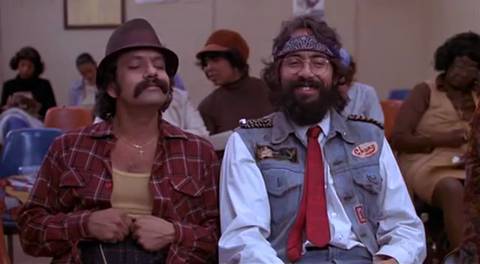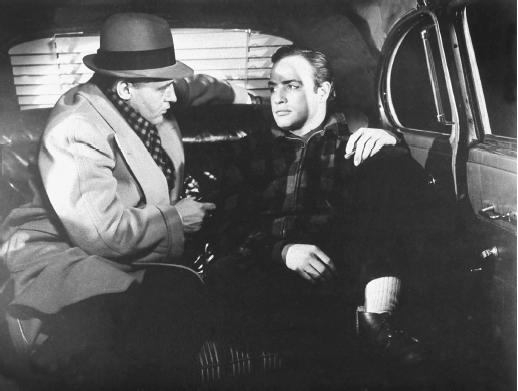
Directed by: Mike Judge
Starring: (voices of) Mike Judge, Demi Moore, Robert Stack
Beavis and Butthead was not exactly a show that was on my "must see" radar when it premiered on MTV in the early 90s. I watched the half-hour show occasionally, which consisted of misunderstandings, misadventures, and music video commentary from the extremely dimwitted duo that wore heavy metal t-shirts and spent most of their waking hours on the couch in front of the TV.
A 90-minute movie featuring the duo is pretty rough sledding. Beavis and Butthead are written as so stupid and so limited in their capabilities that there isn't much that can be done with them. The movie is a series of misunderstandings and misadventures stretched out to 90 minutes.
Beavis and Butthead's dialogue consists of low-register chuckling and cackling and complete misinterpretation of whatever is said to them. Judge probably means this as a satire of a generation brought up on MTV, but it wears thin quickly.
Mike Judge wrote and directed Office Space and the current HBO series "Silicon Valley". Both are superior as satires. Beavis and Butthead simply are too moronic to tolerate for any length of time. Perhaps that is the point, but it doesn't make the experience any better. Even more painful is when Beavis drinks too much soda and turns into Cornholio, which consists of him walking around with his arms up, his t-shirt partially pulled over his head, and saying, "I am Cornholio." The entire segment of Beavis as Cornholio is drawn-out and painful, even more so than the rest of the film.
I probably sound like someone who doesn't "get" Beavis and Butthead, as if somehow I'm missing a larger point or joke that continually eludes me. I think I understand I'm meant to understand, but to the point I do understand, I don't care.











